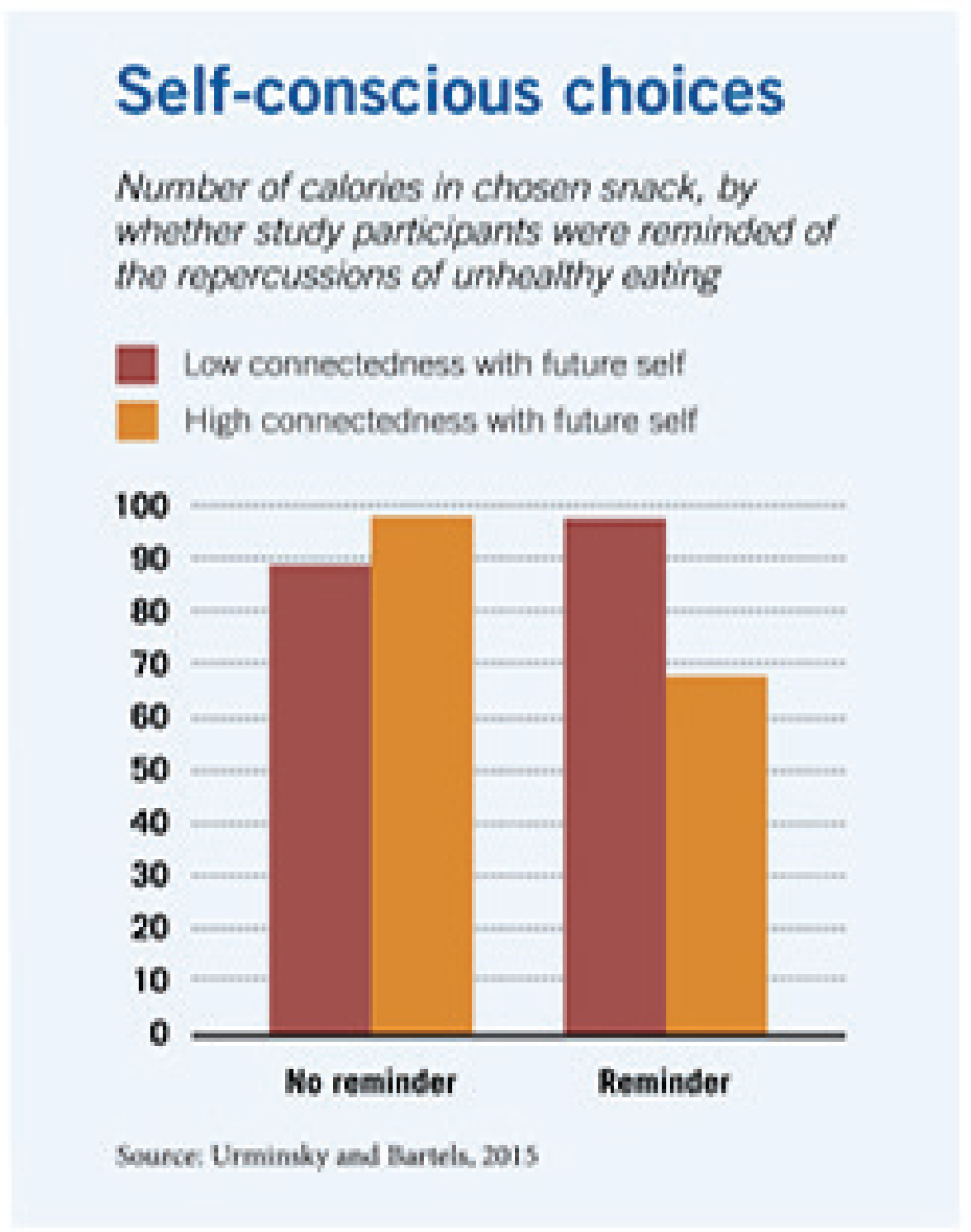
We Need a New Way to Talk about Lying
A different framework could help confront misinformation.
We Need a New Way to Talk about LyingHow to stick to New Year’s resolutions
People who care about their future selves are more likely to succeed at self-control

Participants who were overweight chose lower-calorie snacks if they were prompted to feel highly connected to their future selves, and were reminded of the repercussions of unhealthy eating.
Oleg Urminsky and Daniel Bartels, “Connectedness to the Future Self Shapes Self-Control: Planning, Choices and Goal Persistence,” Working paper, July 2015.

A different framework could help confront misinformation.
We Need a New Way to Talk about Lying
Research suggests we have room for improvement when it comes to investing in tools that mitigate distraction.
Are You Undervaluing Your Own Attention?
A true legacy project would be to create an American Athens.
Why Jeff Bezos Should Donate $100 Billion to the HumanitiesYour Privacy
We want to demonstrate our commitment to your privacy. Please review Chicago Booth's privacy notice, which provides information explaining how and why we collect particular information when you visit our website.